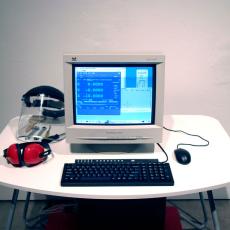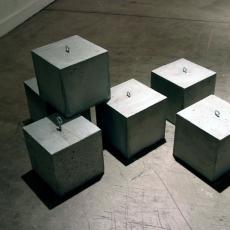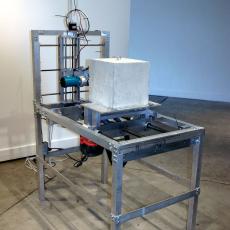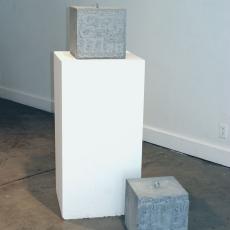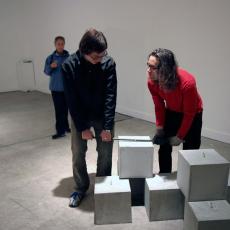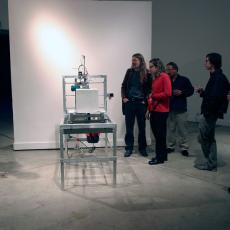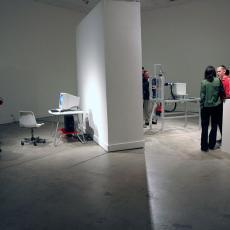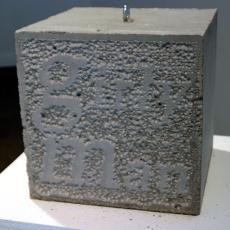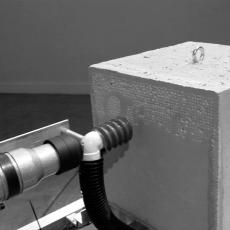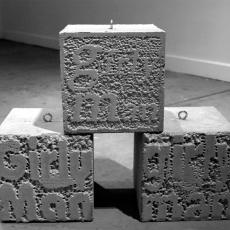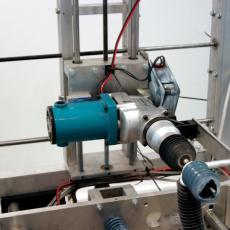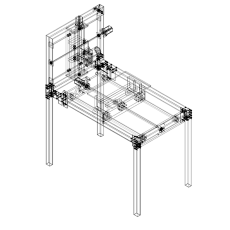Inscription is an exploration of the aesthetics of power in relation to the task of writing. Here, in a time when the neo-fascist spirit is casting a shadow across the political culture, and when the possibility of meaningful political discourse seems more and more remote because of it, there is a relationship between the wealth of violence–war, images of brutality–and the poverty of our communications. There is a relationship between the denigration of thoughtfulness as weakness, femininity, and gayness, and the impossibility of halting the campaign of aggression that the U.S. has embarked on, or of furthering stalled progress in the domain of civil rights or economic justice.
Schwarzenegger's moronically effective hypermasculine politics has made a figure of perverted masculinity a rallying cry of the right: girly-man, that blatantly homophobic and misogynistic epithet. In the conservative imaginary, doubt, intellectualism–or even a willingness to change and reconsider past deeds and decisions–are immediately suspect. There is no consciousness of the offence commited by casting the insulted traits in the feminine.
In this context, Inscription triangulates the relationship between body and language as evidenced in the perspectives of Kafka, Foucault, and Schwarzenegger–between literature, philosophy, and politics, between mind, machine, and human, between poetry, art, and architecture.
The catalog from this work contains extensive essays on the piece and photographic documentation.

